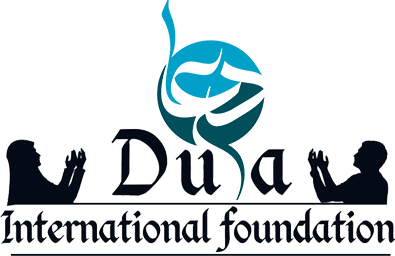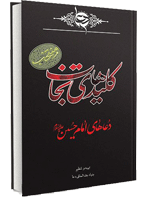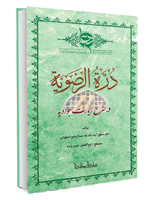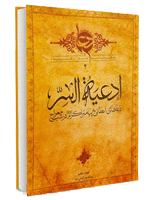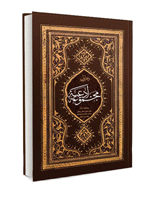- Prophet Muhammad (P.B.U.H&HF): Whenever one of you is needy and brings that to other people, he will not be satisfied. and Whenever someone is needy and brings that to Lord, he shall give him what he wants. sooner or later.
- Imam Sadiq (As.): Whenever you had tenderness in your heart, Pray. because your heart doesn't get tender unless it's pure.
- I told to Imam Baqir (A.S): “What is the meaning of “truly, Ibrahim was awwah and patient”? He replied: “Awwah means (the one who is) praying (to) and wailing (for God) a lot.””
- “Two people, who have acted alike, enter the heaven, but one of them sees the other one in a higher place. Then, he says: O’ Lord! How come has he a superior place in comparison to me while we acted alike? God the Almighty replies: “because he asked Me (whatever he needed) and you did not do that”.
- “The most knowledgeable person to God is the one who asks more from Him”
- “Whoever prays a lot, the angels say: This voice is familiar (to us) and this is the supplication which is accepted and this is the need which is provided”
-
The Holy Prophet (peace be upon him and his Household):
-
وَ لَوْ عَرَفْتُمُ اللَّهَ حَقَّ مَعْرِفَتِهِ لَزَالَتِ الْجِبَالُ بِدُعَائِكُم
If you knew god the way you should’ve known, Mountains definitely will be moved by your supplications. - Crying out of fear of God is the key to his mercy, it’s a sign for his acceptance and it’s a door to answering [supplications]
- Pray to God and believe in his answeres. But understand that God won't accept prays from an unwitting oblivious heart.
Occasions And Motives Of Prayer
Occasions And Motives Of Prayer
A momentary, concrete, immediate need in which the primary interests of life, either of the individual or the group, are threatened- this forms the original incitement to prayer. Famine and drought, danger to life in storm and lightning, attacks by enemies and wild beasts, disease and pestilence, but also accusations and complaints, such as those caused by the shame of childlessness, urge primitive man with fervid force to pray to the higher beings. Momentary, or habitual and permanent, emotional states of high intensity, such as fear, anxiety, vexation, wrath, hate, sorrow, worry, are the psychic experiences produced by such situations as act as motives of prayer. The emotional life of primitive man is far more sensitive, more intense, and less restrained, than that of civilized man, who lives under a great number of restrictions. The smallest stimulation suffices to bring about a quite disproportionate discharge, as H. Schurtz remarks. Excited by the emotion, the will to live expresses itself in a passionate struggle and urgent longing for self-preservation, deliverance from the present situation, the turning aside of the threatened danger. The consciousness of absolute weakness, of complete dependence on higher, mightier beings whose strong hands mould the destinies of humanity, pervades the entire life of primitive man. In the moment of danger and need it awakens a vitality hitherto non-existent. The connection between the feeling of dependence and self-asserting effort gives birth to hope; the Being who is lord of my fate can also help and save me Spontaneously and unconsciously this leads to an invocation of the divinity and a prayer for help.
When such trust no longer exists and yet the feeling of dependence possesses the man, despairing complaint takes the place of confident petition; he does not beg or demand, he only pours out his need and misery before the divinity. Of couke, all these events do not happen in the soul of primitive man in succession; they rather penetrate each other mutually in a unitary collective experience. Yet it is also possible that fear and hope alternate for a long time until a t length trust becomes so strong that words of petition are wrung from the lips of the distressed individual. Fear, therefore, may be described as the impelling, and hope as the releasing motive of prayer. Faith in the existence of supernatural, anthropomorphic beings must be already provided, before man, not without profound emotional disturbance, enters into relation with those beings by invoking them in prayer. Or to use religious language, God must have revealed himself to man before man, on his side, comes to Him; God Himself must open up intercourse with humanity. It is not possible that, as Schopenhauer and Feuerbach thought, faith in God arose merely as the projection of a wish, or that, as the ancient poet believed, fear alone created the gods. Von Hartmann had already correctly recognized that the psychic events in which fear, hope, and the longing for blessedness are bound up, " may be described as a theogonic process only in the sense that he makes already existing objects of consciousness into objects of religious relation, that is, into gods. . . . The recognition of objects must precede the entering into a religious relation with them if the religious relation is to attain absolute assurance, and to stand on the ground of real truth." Man must therefore already possess an idea of God. The feeling of weakness and dependence awakened in distress can only raise this idea to a firm conviction, it cannot evoke it out of nothing. Men take over faith in God from the community in which they were born; but how it first arose cannot here be discussed; doubtless it flowed from a whole series of psychological sources. " Necessity teaches man to pray." But if once through necessity the intercourse with higher beings is opened up and help and deliverance follow on the prayer, man is thereafter led to pray, not only by the menace to his bare existence, but by the desire for an intensification, enhancement, and enrichment of life. The primitive hunter desires success in hunting, the fisherman a plentiful catch, the merchant abundant profit, the farmer a rich harvest, and so on. Thus the wish appears as the second motive of prayer. The original meaning of one of the Greek words for " to pray " is '(to wish." Since the fulfilment of the effort and the desire is not in the hands of man, the feeling of dependence is awakened; but the consciousness that all happiness rests on the will of higher beings, who have already given their aid in times of stress, kindles a trust which then releases the na'ive expression of the wish in prayer to God. Even here the inducement to pray is concrete and momentary. When primitive man goes hunting he prays for game, when he sows he prays for a good harvest; the uprising wish spontaneously changes itself into a prayer. The definite occasions of prayer repeat themselves again and again, the needs impelling to prayer remain constantly the same. Thus it happens that primitive man does not wait until he falls into distress or cherishes a wish, but he regularly brings to the higher beings in a general comprehensive form his permanent needs and wishes. And so, besides the extraordinary occasions of prayer there are the regular, customary ones suggested by seasonal changes, sunrise and sunset, the changes of the moon, seedtime and harvest. Morning and evening prayer is not customary merely in Christendom or among such ancient peoples as the Egyptians, Greeks, and Romans; it is practised by numberless primitive tribes. Every Ovambo in South Africa appears in the morning before his tent door, spits towards the sun, throws out a handful of grass or leaves and a t the same time expresses his wishes. Among the Bantu tribes the appearance of the new moon is a constant occasion of prayer.
The members of primitive society are bound together primarily by a strong tribal instinct and by a self-sacrificing altruism. Social sympathy is expressed not only in prayer when there is a common need, but also in the mutual inter- cessory prayers of the members of a social circle, especially the family, as also of the clan and the tribe. The individual suffers in the distress and need of the man socially bound to him as if it were his own, and out of this altruistic feeling he prays to the powers above for the other's happiness and welfare. Nay, even beyond the limits of the tribe does this social feeling extend. We read occasionally of heartfelt prayers which members of primitive peoples offer to their gods for Europeans, alien in race and blood, who have won their confidence and goodwill. The intercessory prayer of an African chief runs thus: " I and the white man are as near each other as if we were of the same mother." Primitive man is indeed a naive eudaemonist, but so far as he has not under various influences lost his primitive quality, he is no rude antisocial egoist, as so many anthropologists describe him. We must therefore include altruistic sympathy among the motives of primitive prayer.
It is often asserted that less civilized tribes know neither gratitude nor giving of thanks, and that consequently a prayer of thanksgiving is not possible in their religious life. We are referred to primitive languages which have no word meaning " to thank," and it is recalled that in the rich verbal treasury of the Rig-Veda the same defect is found. It cannot, indeed, be denied that, as Schurtz observes, "the giving of thanks as an express form of intercourse is not a universal trait of humanity," although among many primitive peoples it is one of their social customs. Wherever a primitive communism rules there exists but little occasion for testifying gratitude. Yet it is indisputable that the feeling of gratitude belongs to the primary social impulses which are peculiar to man as a social being, and that this feeling is expressed in gesture, countenance, and speech.
Many tribes, like the Dajak, are credited by investigators with a great feeling of gratitude; others, as for example, the West African tribes, practise the giving of thanks even to excess. It is clear from many records that the emotion of joyful gratitude is among the motives of prayer. It is true that the joy seldom passes over directly into a prayer of thanksgiving. As a rule petition precedes thanksgiving; the thankful mood follows upon the desired deliverance from some need, or the prayed-for fulfilment of a positive wish. The feeling of joy is bound up with the consciousness of dependence. It is not to himself or to other men, but to the supernatural being to whom he had first offered sacrifices and prayers, that man gives thanks for the preservation of his life, the blessings of food and property. An African pygmy who was successful in his search for food, prayed: " 0 Waka, thou hast given me this buffalo, this honey, this wine." Here also, as in petitionary prayer, the occasion is momentary and concrete. But as with petitionary prayers so it is the regular occasions that have called forth thanksgiving. Primitive man was originally a hunter and gatherer of plants. I n his search for food he had to trust to fortunate finds; the consciousness of being wholly dependent on higher powers with regard to the satisfaction of the need for food, is expressed most deeply by giving thanks for food and drink. The regular recurrence of the occasion gave rise to the custom of grace before meat, which became habitual among various primitive tribes. Batchelor says that he was greatly surprised when he saw many Ainu (the original inhabitants of Japan) give thanks before eating. Moreover, he never met an Ainu who did not salute his god before drinking wine and who did not thank him for his kindness. This pious custom of a blessing a t table is therefore a primitive usage which persisted in Greece and Rome, in Israel and Mazdaism, and as time went on was deepened and intensified by religion. An especial occasion for the prayer of thanksgiving was harvest time. In China, where the forms of primitive religion have been preserved with great fidelity down to historical times, thanksgivings were always offered after the harvest. The harvest thanksgiving to-day still has a place in Christian churches.
Certainly in many cases the pure feeling of gratitude in returning thanks is mingled with a simple-minded eudaemonistic desire to insure the future favour of the god by expression of thanks. Yet it would be unjustifiable on that account to consider the prayer of thanks as nothing more than an expedient born of a calculating egoism and recital with a view to new proofs of divine favour. Only when sacrifice rules the religious life and becomes a formal commerce with supernatural powers, does thanksgiving fall into the background; man believes that on the ground of his sacrificial offerings he has obliged the god to fulfil his wishes, so that he does not need to be further grateful to him. This might explain why in the great ancient religions-which were certainly sacrificial religions -we
meet with the prayer of thanksgiving much less frequently than among primitive tribes. In petition and thanksgiving man's most personal interests drive him to God, but already in the prayer of primitive man there is a hint a t that form of prayer which reaches its highest perfection in mysticism, the self-forgetting adoration which has lost itself in God. Awe in the presence of the Holy stands
beside need and gratitude as another motive of prayer. The Holy is a t once awesome and fascinating, and it is from that specifically religious feeling or primeval emotion of anxious dread and enraptured fascination that the mysterious, wonderful " power," the magic " force," mana and tabu, is born, which is one of the most important roots of belief in God. It is an undifferentiated emotion which includes fear and hope, anxiety and trust, dread and bliss, trembling and surprise. The English language has for this experience a fairly appropriate term in the word awe. Among many peoples this emotion expresses itself in an involuntary cry. The names of the "power," mana, tabu, wakanda, manitu, and so forth, originally go back to the spontaneous cry which bursts forth from the religious emotion. They do not however indicate any address in prayer, because the object presupposed in the emotion, "the Holy," does not possess the features of a human personality. But wherever the notion of the " power " is bound up with a personifying animistic set of ideas, when belief in mana goes hand in hand with belief in spirits, the direct address in prayer may issue out of reverential dread. Whenever primitive man passes by an object in which dwells a mighty spiritual being, a divinity, he manifests his reverence by a few words of greeting and veneration and lays down an offering, even though only a symbol. No Herero passes by the sacred tree without a t least laying a stone a t its foot, with the words: "Hail! Father! " The mystic is absorbed in a non-sensuous, spiritual world; the contemplation of primitive man is fastened on a sensuous object. But if we could hear the secret utterances of these naive worshippers we should discover the same blissful yet dread experience of the " Holy," the " Highest Good " in which the mystic's soul is entranced. Moreover, that other form of mystical prayer, ecstatic praise, seems to be already existent in primitive religion at least in germ. Ecstasy as an experience of physiologically abnormal individuals as well as a mass-epidemic, is not a rarity in the primitive or ancient world. Mysticism has elevated it from being a mere physical intoxication, induced by a variety of narcotics, to become the sublimest spiritual experience, that of the identity of the pure, world-renouncing ego with the Infinite and the Eternal. But the religious interpretation is the same in the one as in the other. Ecstasy means a passing out from the ordinary physical life, a being obsessed and engulfed by the superhuman and the divine. Therefore the loud cries by which the ecstatic state is revealed may be cries and prayers of praise to the divinity. It appears that the brief, concluding cries of ancient hymns were originally ecstatic shouts of joy, the triumpe of Roman prayers, the hailly of old Mexican hymns, the refrain of the ancient Greek songs of Dionyso~.~Thus we may also count amongst the motives of prayer ecstatic enthusiasm, although naturally rapturous inspiration and reverential awe are less frequently motives of prayer than need and gratitude.
Parts of : Prayer, a Study in the history and psychology of religion
by: Friedrich Heiler
